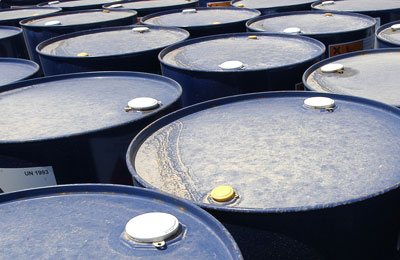
Cheaper oil, but not too cheap
London, August 22, 2013
The period of rising oil prices is over but there could still be a decent nachspiel (after party) since there are powerful forces that will stop oil prices from sliding too far down, says a new report by leading oil analyst Torbjorn Kjus of DNB Bank.
The report says that oil price is expected to stay at around $102 per barrel for 2014 and $100 for 2015 – and then a gradual decrease in prices to $90 during 2015-2020. The oil price will trade mainly in an $80-100 range after 2015, it said.
"We believe a larger supply growth outside of Opec than what we have seen the last 10 years - in combination with lower trend line oil demand growth - will bring oil prices somewhat lower. We do however not believe in a return to cheap oil. This is due to the high cost of bringing the new barrels to the market, rising geopolitical risk and rising global field decline rates, which will materialise if the oil price should fall too much," it said
Oil’s share of the global energy mix is set to continue to decrease in the coming years. The oil age will not end due to a lack of oil just like the Stone Age did not end due to a lack of stones. Technology changes and price incentives are the key words. Why use expensive oil if you can use cheaper natural gas and why drive an inefficient car if you can drive an efficient one? Why develop expensive arctic offshore oil if you instead can develop cheaper shale oil onshore?
The high and rising oil price we have seen since the change of the millennium is starting to initiate structural changes to oil demand through substitution and efficiency improvements. The changes are not as large and fast as we saw after the rising oil price in the 1970’s but they are coming nonetheless, it said.
The US market will retake its position as the most important market for oil price formation the coming 5-6 years. Net US imports of oil has dropped since 2007 but so far the largest switch has been in refined products. The next step is significantly lower crude oil imports. US demand for refined oil products will be trending lower in coming years despite our view that US GDP growth will be stronger than the consensus forecast, the report said.
"Accelerating oil demand in the non-OECD is not materialising like we earlier predicted it would. Chinese refinery throughput is stalling and Chinese economic growth will be less energy intensive going forward. This is already materialising in 2013. High car sales will not be enough to secure the same level of oil demand growth from China as we have been used to see during the last 10 years. Population growth and urbanisation will continue to provide energy demand growth in non-OECD but refined products are not going to be the winner in the energy mix market share," it said.
Oil production outside of core-Opec is growing quicker than global oil demand due to the North American shale oil revolution. It implies that the “call on Opec” crude oil will be falling in coming years. US crude oil production has increased 1.7 million bpd the last two years.
Why not a return to cheap oil? The answer is that the costs to bring the new shale oil barrels to the market are high and geopolitical risk in the Middle East will be higher than in the prior 10 years due to the Arab Spring. Unplanned outages caused by geopolitical unrest have more than offset the growth in US shale oil production since 2010, the report said. - TradeArabia News Service







